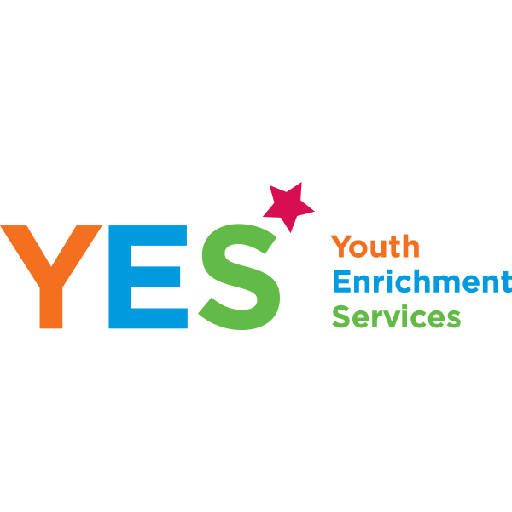Why Do We Recognize the Land?
Land acknowledgements do not exist in the “past tense.” Colonialism still exists today in various forms. Indigenous history is still taught incorrectly at several schools across the United States (if taught at all), Indigenous dispossession of lands and waters, relationships, and political authority persists, and more (Midzain-Gobin & Smith 2023). It is therefore necessary to understand the history that has brought oneself to reside on this land and understand one’s place within that history. It is also important to express one’s gratitude, appreciation and respect toward the people whose territory on which one resides to honor Indigenous communities and disrupt false narratives around the history of this land (Know the Land).
Full Statement:
We, the committee members, staff, participants and families, of Youth Enrichment Services, and our collaborative stakeholders recreate on the traditional and ancestral lands of the Massachusett people. We recognize that YES’ outdoor programs and activities also occupy the land of neighboring tribes; Nipmuc, Mohican, Mashpee Wampanoag, Aquinnah Wampanoag, Pawtucket (Penacook), Wabanaki, and pay respects to elders both past and present. This acknowledgement aims to recognize and respect indigenous people as the traditional stewards of this land and the enduring relationship that exists between indigenous people and their traditional territories.
We acknowledge the centuries of hardships of forced removal, genocide, cultural assimilation, and ethnic cleansing indigenous people faced as a direct result of colonialism. Today, the Massachusett, Nipmuc, Wampanoag, and Mohican people work to reclaim their culture, and pass forward their ancestral traditions to the next generations to come.
As a youth development organization that believes strongly in giving youth access to the outdoors, YES is committed to educating our community about the history of the lands on which we currently reside, visit, and recreate. We commit to working to stand in solidarity with native people and dismantle the ongoing legacies of settler colonialism.
Spoken Statement:
Youth Enrichment Services (YES) recognizes that our outdoor programs and activities occur on the lands of the Massachusett people, and also occupy the land of neighboring tribes; Nipmuc, Mohican, Mashpee Wampanoag, Aquinnah Wampanoag, Pawtucket (Penacook), and Wabanaki. We aim to respect indigenous peoples as the traditional stewards of these lands.
As a youth development organization providing underserved youth access to the outdoors, YES is committed to educating our community about the history of the lands on which we reside and explore. We acknowledge the centuries of hardships indigenous peoples have faced, and therefore we stand in solidarity with native peoples in dismantling ongoing colonialist legacies.
If you are interested in learning about the lands on which YES operates its programs, we invite you to read more at www.yeskids.org/landacknowledgement
How YES is Supporting Native People
YES is proud to be partnered with IPDN (Indigenous Peoples Day Newton) to offer annual Intertribal Youth Ski Trips. These trips are valuable because they provide the space for intentional intertribal gathering that builds connection, provides healing, develops relationships with tribal members, and fosters reconnection to ancestral land. Several tribal leaders from the Narragansett, Nimpuc, Wampanoag, and Taino communities have led previous Intertribal Ski Trips at Whaleback Mountain. These trips illustrate a movement to create access for indigenous youth to engage in the SnowSports experience and strengthen relationships among indigenous youth and our connection to the land. Additionally, YES partners with IPDN to participate in the annual Indigenous Peoples Day Ceremonial Celebration, an event that welcomes community members to enjoy cultural dances and presentations, support local Indigenous vendors, learn about local non-profits, and more. YES is so grateful for this partnership and the opportunity to continue learning new ways to support Native communities.
Land Acknowledgements 101
Know the Land
To learn more about the traditional and ancestral lands of the Massachusett people and neighboring tribes, please visit the websites below.
Massachusett Tribe: https://massachusetttribe.org
Nimpuc: https://www.nipmucnation.org
Mohican: https://www.mohican.com
Mashpee Wampanoag: https://mashpeewampanoagtribe-nsn.gov
Aquinnah Wampanoag: https://wampanoagtribe-nsn.gov
Wabanaki: https://www.wabanakialliance.com
FAQs
Note: While extensive research, conversation, and thought was involved in collecting and presenting this information, YES staff are not experts on these topics. We believe in the importance of continuous learning and welcome any additional information, conversation, or questions from individuals who would like to share with us.
This page is continually under construction as YES expands and evolves its DEI efforts. We continue to learn from others and further educate ourselves.
How was the statement created?
The specific wording in YES’ land acknowledgement statement is the result of an intentional, collaborative process of research, reading, and writing completed by YES staff members.
How can I use it?
The YES land acknowledgement statement can be read aloud before events, programs, and more.
Whose land are we on?
YES’ office is located on the land of the Pawtucket and the Massachusett Tribe.
YES’ Swann Lodge is located on the land of the Mohicans.
Additional Resources & Ways to be Actionable
To learn more about how you can support Native Americans, deepen your understanding of Native communities, discover information about Indigenous Peoples Day in Newton, MA, or determine the history of the land you are standing on, visit the resources below.
References
Know the land. Laurier Students’ Public Interest Research Group. (n.d.). http://www.lspirg.org/knowtheland
Midzain-Gobin, L., & Smith, H. (2023, July 18). Not in the past: Colonialism is rooted in the present. The Conversation. https://theconversation.com/not-in-the-past-colonialism-is-rooted-in-the-present-157395
